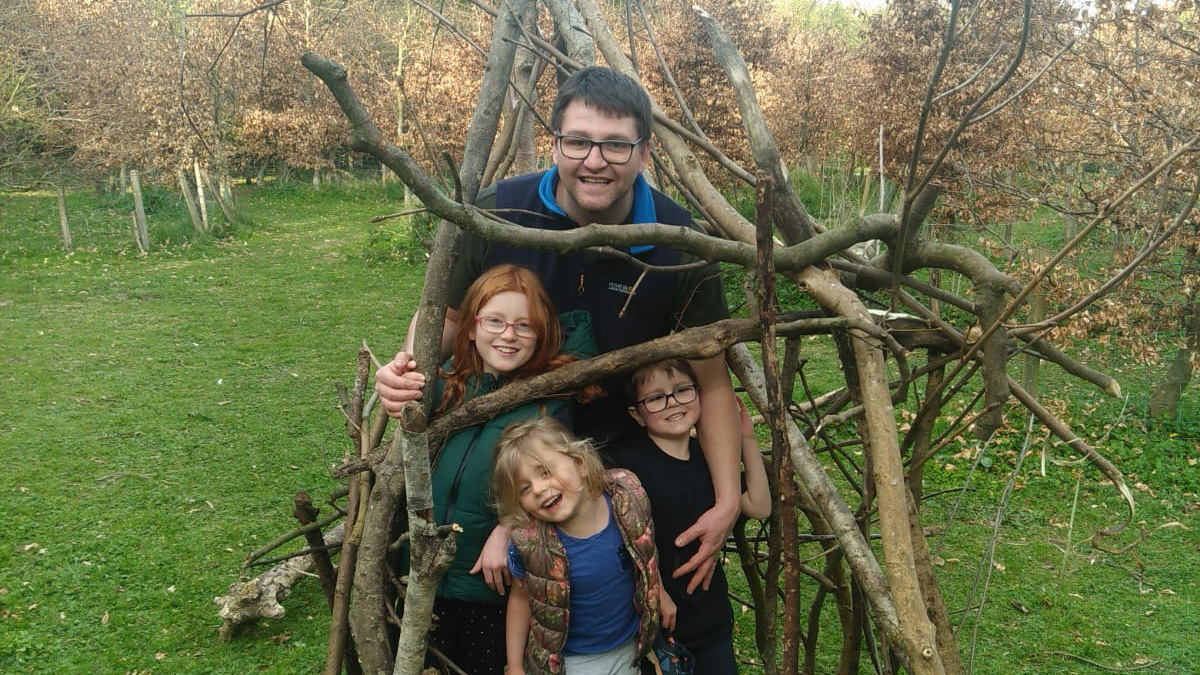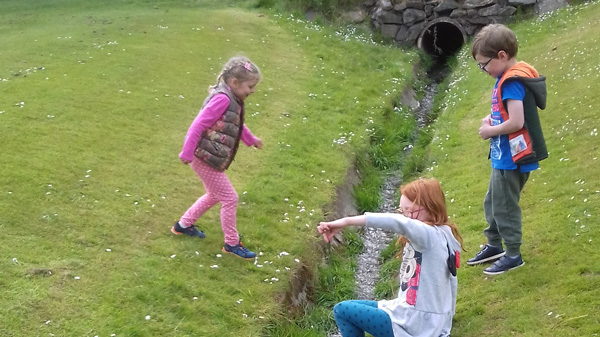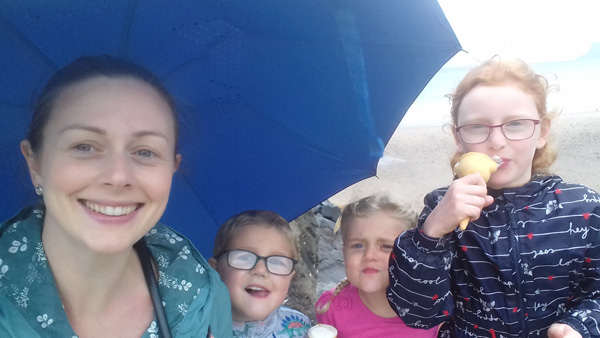COVID-19 and vulnerable children: Urging caution while enjoying childhood

How do you keep a child with a suppressed immune system safe during COVID-19 lockdown? And how do you explain the dangers while protecting their – and your own – mental health?
These are the questions hundreds of families of young people with underlying health conditions are struggling with as the world tackles the COVID-19 crisis.
We talk to Anna Hughes, whose six-year-old son Joseph has ulcerative colitis (UC) and the liver disease primary sclerosing cholangitis (PSC) about living with fear and uncertainty.
Traumatic start
Joseph was only a year old when he started showing symptoms of UC, a form of inflammatory bowel disease (IBD), characterised by inflammation in the gut.
“It is hard to put into words what Joseph and our whole family have gone through over the last five years,” says Anna.
“He has been in and out of hospital, both in Belfast and England, so many times, especially during the first few years of him being unwell. He was tube fed for almost a year because he had lost so much weight, and then had to be on really restricted diets. Even though he is off those now, he is still very limited in what he eats.
“He has had to have bloods taken well over 200 times, and has had about 15 general anaesthetics for MRIs, scopes and biopsies.”
Joseph is on four different medications, one of which is an immune suppressant, meaning he falls into the vulnerable group during the COVID-19 outbreak.
Along with many, many others in a similar position, the Belfast-based family is now faced with getting used to a new normal.

A new normal
Because of the absence of specialists in Northern Ireland, Joseph and his parents are obliged to take regular trips of up to a week or more to see specialists in Newcastle Upon Tyne for his IBD.
Worryingly for his parents, these appointments have now been cancelled. The Hughes are waiting to hear when he might next see his specialist healthcare teams. Appointments with his team in Belfast have had to take place over the phone, meaning no physical examination.
His sessions with a clinical psychologist, who helps Joseph to cope with the emotional toll of living with IBD through activities and play, are also on hold for the foreseeable future. Anna believes he is struggling with this, especially with his normal routine now disrupted, and is worried it may lead to serious long-term problems.
Joseph and his siblings are not attending school, and his weekly blood monitoring clinics have been moved from the local hospital into primary care as part of the health services response to the pandemic.
“His weekly trip to the GP surgery has been made more frightening through the nurses and Joseph having to wear masks. This only adds to the already negative experience of having to have his blood taken,” explains Anna.
His vulnerable, high-risk status means Anna, her husband Aidan, and their two other children, Olivia, nine, and five-year-old Charlotte, have to be extremely careful.
This close monitoring has been complicated by Aidan’s job as a key worker in a community pharmacy.
“He is working long and unsocial hours. He takes all the precautions available, such as wearing a mask and serving customers from behind a screen, but is still worrying because he is more at risk of catching the virus and then infecting the rest of the family.
“We are taking our daily walks in places that we know will be quiet, and I am taking the hand sanitizer everywhere. But it’s hard,” says Anna, adding that it was difficult to explain the reasons for caution without scaring the children.
Complex concepts
“It’s a real challenge to find a balance between ensuring they are hand washing and not touching things when out on walks while not communicating to them that I am worried.
“I spent a good bit of time, especially during the first few weeks of lockdown, explaining that children are unlikely to die from coronavirus. But despite my reassurances, I was shocked to overhear a conversation between the children saying: 'If any one of us is going to die, it will be Joseph’.”
Joseph is frequently too scared to go to sleep, saying he doesn’t want to get older and then die from the infection. He’s also worried about missing his June birthday, particularly as he was in hospital for two weeks over last year’s celebrations.
“I only watch the news when they are in bed, but they absorb so much from the radio,” says Anna, adding that while the trio missed their school friends, they certainly didn’t miss school.

Ups, downs and trusted information
The increased stress and worry about Joseph’s immune system, home schooling three children, missing family and friends, and Aidan’s long hours as an essential worker are all taking their toll on the family. But they are trying to remain positive.
“It is hard and it is worrying, but while for some people this will be their first really traumatic time, for us this is just another in a long list of hard times to go through,” says Anna.
“So, in a way, I feel we are well equipped because of our previous experiences with illness, worry and upheaval of normal life.”
Her top pieces of advice to others in her position were to make the most of the daily exercise allowance – especially in sunny weather – and accepting the ups and downs of living with uncertainty.
“One day it can be great. I’ll think about how much I love spending time with the kids, and then the next day I might think it is too hard, I can’t do it. It’s so strange how it changes overnight like that.”
Limiting news intake and focusing on trusted sources of information were her keys to dealing with her concerns, she adds.
“We need to look at the statistics and just stick with it. I know we will get through this,” she says.
For information on how to support children and young people with IBD during the coronavirus crisis, see CICRA’s website











